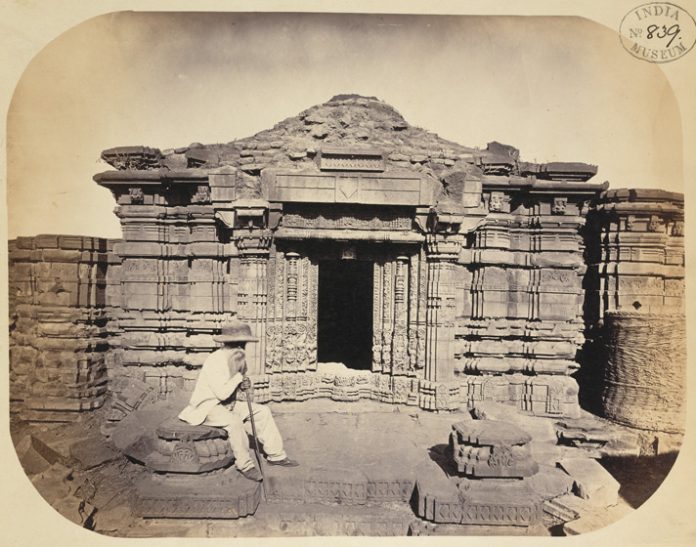WASHINGTON, DC – On May 22, 2025, in Bareda Para, a Hindu-majority village in Jashore district, Bangladesh, over 500 families gathered for a religious celebration—a spiritual festival known as the jajna. Instead of joy and devotion, the evening ended in flames and terror. Eighteen Hindu homes were torched to ashes. Women were physically assaulted. A 25-year-old youth, Sagar Biswas, was abducted. The village was looted and desecrated. This was not a riot. This was not a misunderstanding. This was a targeted pogrom.
This act of collective punishment, following the unrelated murder of a local political figure, marks yet another entry in the horrifying ledger of violence against Hindus in Bangladesh. And this time, the pattern is too clear to ignore. This is the deliberate erasure of an entire indigenous population from their ancestral land.
The Bangladeshi government has neither offered protection nor provided justice. There have been no arrests. No First Information Reports (FIRs) have been filed. Local authorities arrived more than four hours late, even as the fire raged and residents made repeated emergency calls. According to local eyewitnesses, the roads had been intentionally blocked to prevent rescue services from reaching the area.
The Numbers Don’t Lie—But the Government Does
According to the Bangladesh Hindu Buddhist Christian Unity Council (BHBCUC), more than 3,000 communal attacks have taken place in the first five months of the Yunus administration. These include 23 murders, nine rapes, dozens of arson attacks, and the systematic looting and occupation of minority-owned land.
For Hindu families in rural Bangladesh, these are not just numbers. These are funerals. These are burned wedding albums, looted temples, violated daughters, and shattered livelihoods. These are stories that never make international headlines—because a government that fails to protect itself also excels in denial.
A Government of Impunity, A Society in Silence
Let us be clear: the attackers in Jashore were not acting alone. They are empowered by a system that has made impunity the norm. By framing the Bareda Para pogrom as a “business dispute,” the local police and ruling authorities are not just minimizing the crime—they are complicit in it.
In fact, this denial has become a political tool. Every act of anti-Hindu violence is whitewashed as “local tension,” “mob reaction,“ or “spontaneous unrest.“ Meanwhile, Islamist mobs—often radicalized and organized—continue to operate unchecked. This is a state-sponsored erasure.
And yet, despite everything, the international community remains largely silent.
Burning Homes, Silencing Voices
In Bareda Para, families who had lived for generations on that land now spend nights in fear, electricity still not restored, and their homes reduced to rubble. Women like Smriti Biswas and Panna Biswas were stripped of everything—jewelry, medicine, clothes, safety. Elderly mothers begged attackers to spare them while gunpowder was poured on their roofs. Still, the world turned away.
It is not just homes being burned—it is the hope of an entire people. This is a slow-motion genocide. And without intervention, the consequences are irreversible.
The Demographic Collapse: A Disappearing People
Since 1947, the Hindu population in Bangladesh has fallen from nearly 30% to under 7%. Today, that decline is accelerating. At this pace, 25 million Hindus could disappear from their own country within our lifetimes. Entire villages have already vanished, their temples replaced by mosques, their lands seized, and their families scattered across refugee camps or silent graves.
What is happening in Bangladesh is not communal strife—it is ethnic cleansing through intimidation, arson, assault, and legal neglect.
International Law is Clear, So Why Silence?
The United Nations Universal Declaration of Human Rights (1948) states that “everyone has the right to life, liberty, and security of person“ (Article 3) and that “no one shall be subjected to torture or cruel, inhuman or degrading treatment or punishment“ (Article 5). Bangladesh is a signatory. So why are these rights not extended to its Hindu citizens?
Religious freedom is not a domestic issue—it is a global human rights mandate. The international community has an obligation to act when a government fails to protect its minorities and when entire communities live under the shadow of terror.
We Demand International Accountability
As the President of the South Asian Minorities Collective, I call upon the international community—especially the United Nations Human Rights Council, Human Rights Watch, Amnesty International, and the U.S. Department of State—to take immediate action: Launch an independent international investigation into the Jashore pogrom and similar attacks across Bangladesh.
Impose diplomatic pressure on the Bangladeshi government to ensure the protection of minorities and immediate prosecution of perpetrators.
Support the documentation and protection of minority rights defenders, witnesses, and journalists exposing religious persecution in Bangladesh.
Suspend international aid or development programs that do not include strict accountability measures for human rights abuses.
Additionally, we call upon the U.S. Commission on International Religious Freedom (USCIRF) to designate Bangladesh as a Country of Particular Concern (CPC) under the International Religious Freedom Act, given the pattern of persecution, violence, and state apathy.
Hope in Ashes
Despite the trauma, the Hindu community in Bangladesh has not lost its voice. Survivors like Manab Biswas, whose home and memories were incinerated, still demand justice. Retired teacher Bikash Chandra Biswas, whose elderly mother was nearly burned alive, still speaks out. These are acts of immense courage that must be met with global solidarity and support.
Because this is not just a South Asian issue—it is a human issue. And the longer the world waits, the more communities will burn. But if the world acts now, perhaps it is not too late.
Let the Fire Stop Here
The fire in Bareda Para may have died out—but the world must not look away. If we fail to hold the perpetrators accountable and force a government response, we will be complicit in allowing 25 million Hindus to vanish from the soil of their ancestors. Their fight is not just for survival; it is for dignity, justice, and the fundamental right to exist.
Let us not wait until all that remains of Bangladesh’s Hindus are burnt homes and forgotten names.

